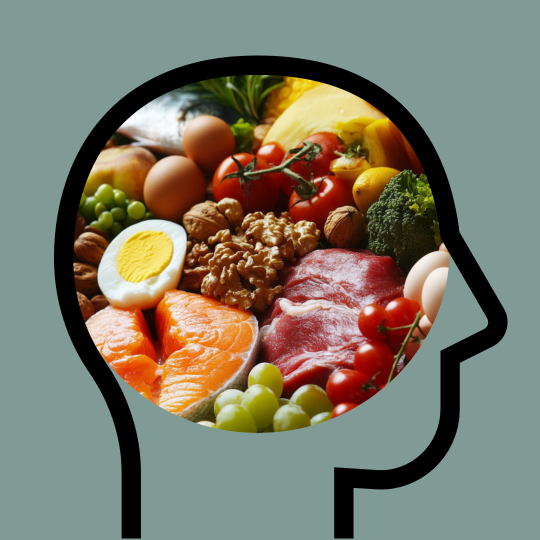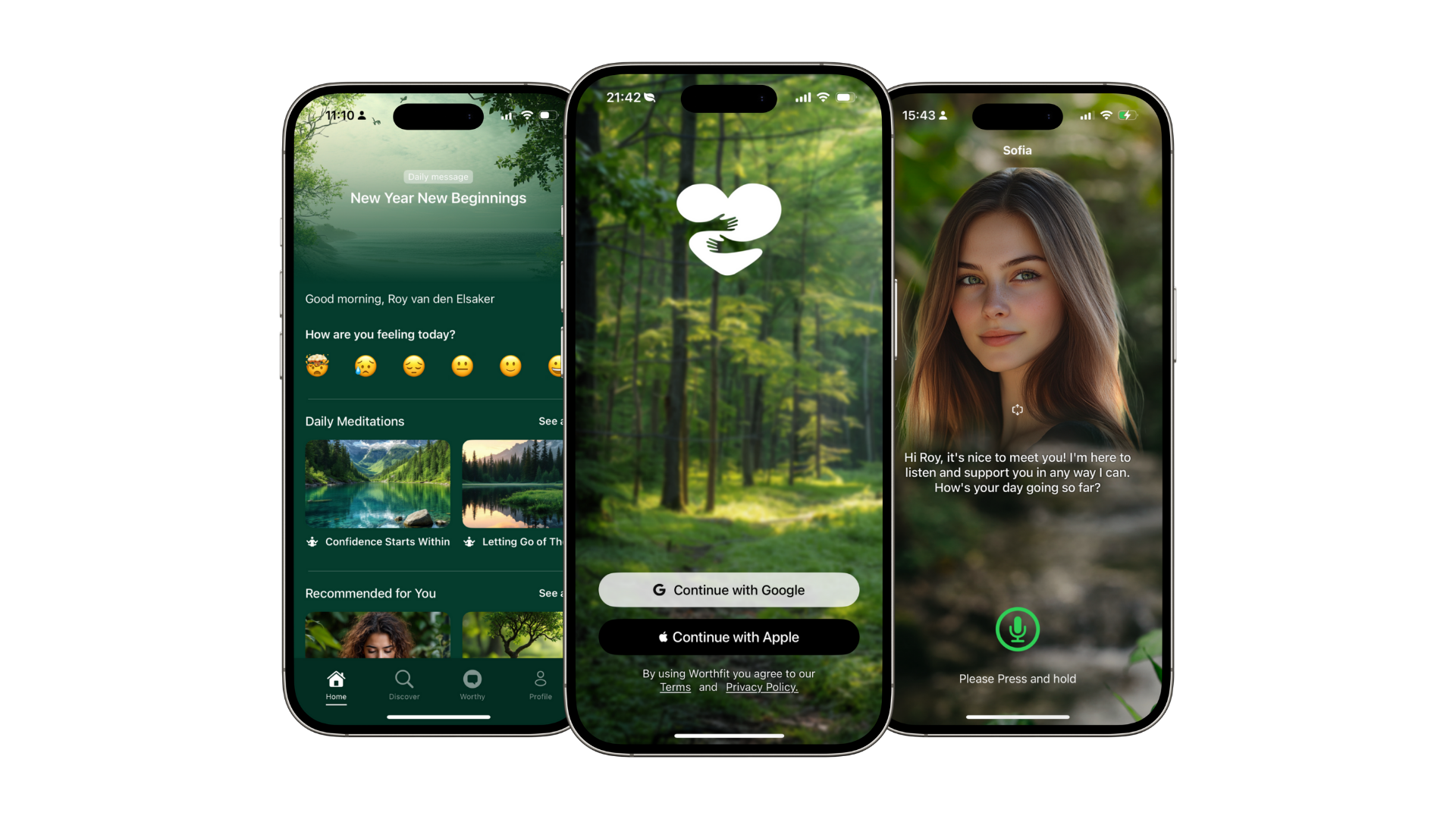
Ever had a sugar crash that made you feel irritated? Or noticed that eating fresh, whole foods made you feel more energized and focused? It’s not just in your head. What you eat directly affects your brain, mood, and mental well-being. Research shows that diet plays a crucial role in preventing anxiety, stress, psychiatric disorders, including depression, and cognitive decline. The good news? Small changes in your diet can lead to big improvements in your mental health.
In this guide, we’ll break down how diet and mental health are connected, and how you can make smart food choices to boost your mood, sharpen your focus, and keep stress at bay.
Let’s dive in!
Table of Contents
1. The Gut-Brain Connection: Your Second Brain
Why Your Gut Controls More Than Digestion
Your gut and brain talk to each other through something called the gut-brain axis. Scientists call your gut your “second brain” for a reason – it produces neurotransmitters like serotonin, which regulate mood and emotions. A healthy gut microbiome can reduce anxiety and depression, while an unhealthy one may lead to mood swings, irritability, and even mental fog.
How to Improve Gut Health
✔ Eat More Probiotics: Foods like yogurt, kimchi, and sauerkraut contain good bacteria that help balance your gut.
✔ Feed Your Gut with Prebiotics: These are found in bananas, garlic, and onions and help good bacteria thrive.
✔ Limit Processed Foods: Artificial ingredients and excessive sugar can disrupt gut bacteria, leading to inflammation that affects your mood.
Bottom Line: A happy gut = a happier brain. Feed your gut the right foods, and your mind will thank you.
2. Nutrient-Rich Diets Enhance Cognitive Function
Brain Fuel: What You Eat Affects How You Think
Your brain needs the right nutrients to function at its best. Antioxidants, vitamins, and minerals protect brain cells from damage and keep your memory and focus sharp. Research has linked the Mediterranean diet, rich in whole foods and healthy fats, to better cognitive performance and lower risks of depression.
Foods That Boost Brainpower
✔ Leafy Greens (Spinach, Kale): Packed with antioxidants that reduce brain inflammation.
✔ Berries (Blueberries, Strawberries): Rich in flavonoids that improve memory and learning.
✔ Whole Grains (Quinoa, Brown Rice): Steady energy for the brain, helping you avoid mid-day crashes.
Bottom Line: Want to think clearer and remember better? Eat more whole foods and fewer processed snacks.
3. Omega-3 Fatty Acids: Brain’s Best Friend
How Healthy Fats Reduce Anxiety and Depression
If your diet lacks omega-3 fatty acids, you might be more prone to mood swings, brain fog, and psychiatric disorders, such as depression. Omega-3s reduce brain inflammation, boost neurotransmitter function, and help regulate stress hormones. Studies show that people who eat more omega-3-rich foods tend to have lower rates of depression and better emotional resilience.
How to Get More Omega-3s
✔ Eat Fatty Fish (Salmon, Mackerel, Sardines): Just two servings per week can improve mood and cognitive health.
✔ Snack on Walnuts & Chia Seeds: These plant-based sources are perfect for vegetarians.
✔ Use Flaxseed or Olive Oil: Drizzle over salads or blend into smoothies for a brain-boosting kick.
Bottom Line: Healthy fats = better mood, less stress, and sharper thinking. Don’t be afraid to add them to your diet!
4. Hydration and Mental Clarity
Dehydration = Brain Fog & Fatigue
Think about the last time you felt groggy, cranky, or struggled to concentrate. Did you drink enough water? Even mild dehydration can impair focus, memory, and mood. Your brain is 75% water, and when you don’t drink enough, cognitive functions slow down.
Hydration Hacks for a Sharper Mind
✔ Eat Fatty Fish (Salmon, Mackerel, Sardines): Just two servings per week can improve mood and cognitive health.
✔ Infuse with Flavor: Add lemon, cucumber, or berries if plain water isn’t appealing.
✔ Set Reminders: Use an app or phone alarm to prompt you to drink water regularly.
Bottom Line: Your brain thrives when hydrated – drink up and stay sharp!
5. Limiting Processed Foods for a Happier Mind
Sugar, Fast Food, and Mental Health
Ever felt sluggish and irritable after a junk food binge? That’s because processed foods and excess sugar cause blood sugar spikes, leading to mood swings, fatigue, and even depression. Research shows that highly processed diets are linked to higher risks of anxiety and mental health disorders.
How to Cut Back on Processed Foods
✔ Read Labels: Look out for hidden sugars and artificial additives.
✔ Cook at Home More: Controlling ingredients makes a huge difference in nutrient intake.
✔ Swap Junk for Whole Foods: Trade candy for fruit, chips for nuts, and fast food for home-cooked meals.
Bottom Line: Your brain hates processed food. Swap it for fresh, whole ingredients and feel the difference.
It’s Okay to Indulge Sometimes
Before you stress about cutting out every unhealthy food, let’s be real – you don’t have to be perfect. Life is meant to be enjoyed, and food is more than just fuel – it’s part of social experiences, celebrations, and comfort. Eating healthy most of the time is what truly matters.
- Balance, not restriction: Enjoy your favorite treat without guilt – just keep it in moderation.
- Mindful indulgence: Savor your treats instead of mindlessly eating them.
- No food is “bad”: it’s about overall patterns, not single meals.
Bottom Line: Healthy eating is a lifestyle, not a diet. Make good choices most of the time, but enjoy your life, too!
How Worthfit Helps You Build Healthier Eating Habits
Changing your diet to support better mental health is one thing – but sustaining those changes long-term? That’s where Worthfit comes in.
Inside the Worthfit app, you’ll find:
- Personal Growth Path →Learn how to create and maintain eating habits that enhance mental clarity, focus, and emotional well-being with our topics like “Goal Setting” and “Building Positive Habits”, so you can make real changes that last.
We’re not saying you need to follow a perfect diet, but small, mindful changes can make a huge difference in your mood, energy, and cognitive function. Worthfit helps you build those habits – and make them stick for the long run.
Final Thoughts: Balance is Key
Your diet is one of the most powerful tools you have for improving your mental health. The right foods can reduce stress, boost mood, and sharpen your mind. Small, daily choices add up to a healthier, happier you. But remember, balance is key; you don’t have to be perfect. Enjoying treats in moderation while making overall healthy choices is what truly matters.
Ready to fuel your brain the right way? Start your journey with Worthfit today!
Remember: You’re Worth-fit
Worthfit is your personal mental health companion, designed to support you through guided self-care. Whether you need someone to listen, insightful articles to explore, personalized daily insights, or tailored (sleep) meditations, Worthfit can help you manage stress, track your mood, and build emotional resilience. Whenever you need it, wherever you need it.
Note: Worthfit is not a medical device and is not intended to diagnose, treat, or prevent any medical conditions.






